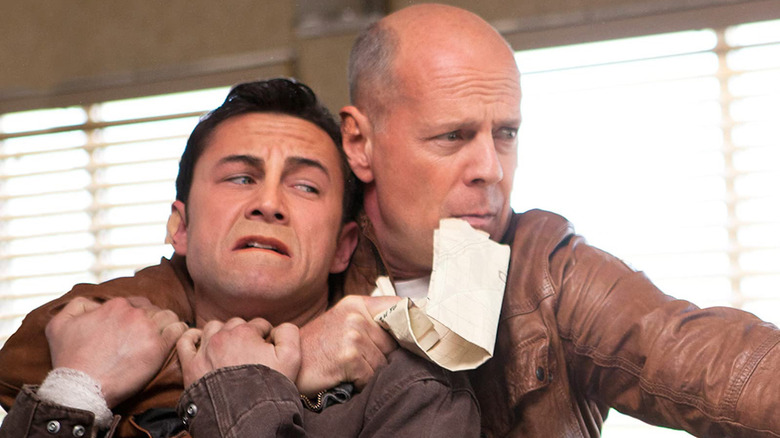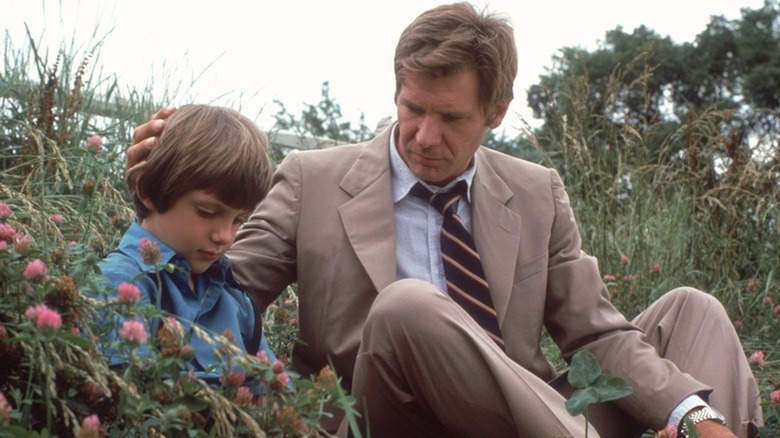Rian Johnson's Looper Was Largely Influenced By An '80s Harrison Ford Thriller
Rian Johnson's "Looper" is not your standard issue time travel flick. It's also a neo-noir crime yarn that veers into a man-on-the-lam thriller before unexpectedly integrating elements of telekinetic horror. It's a full 118-minute meal that more than satisfies on every subsequent viewing. And while you can easily rattle off its numerous movie influences ("12 Monkeys," "Blade Runner," "The Fugitive," and, when the Rainmaker finally turns up, "The Fury"), the film that most inspired Johnson's crafting of the narrative, particularly as it settles into its second act, is a quieter kind of genre tale.
Most moviegoers probably didn't anticipate what was sold as a Bruce Willis sci-fi action movie to head off in so many surprising directions, but Johnson has been infusing his films with all kinds of unexpected flavors since his critically acclaimed debut "Brick" –- and, frankly, even most cinephiles familiar with Johnson's oeuvre up to that point were caught off-guard by the younger version of the movie's protagonist (Joseph Gordon-Levitt) taking a mid-film detour to a farm maintained by a single mother (Emily Blunt). As for the moment where her child (Pierce Gagnon) dispatches a gangster (Garret Dillahunt) in shockingly gruesome fashion with his freaking mind ... you'd have to be touched with some extra-sensory powers yourself to have seen that coming.
In any event, Gordon-Levitt hiding out at the farm brought to Johnson's mind one of the best films of 1985, a fish-out-of-water cop thriller that earned Harrison Ford his (thus far) only Academy Award nomination. That movie is, of course, Peter Weir's "Witness."
Witness is 'a brilliant, brilliant film'
In a 2012 interview with Yahoo! Movies, Johnson was asked to discuss which films, beyond "12 Monkeys" and "Blade Runner," influenced the writing of "Looper." According to the filmmaker:
"'Witness' was a big one. When I was writing the back half of the script, I looked at the way that they sustain the tension in that movie even when they're out on the farm. That's a brilliant, brilliant film. I owe quite a bit to that movie, probably more so than any of the sci-fi movies you've mentioned."
Weir's film, which won the Oscar for Best Original Screenplay (shared by Earl W. Wallace, William Kelley and Pamela Wallace), manages to keep the audience on the edge of its seat even as it explores the foreign-to-Ford social mores of the Amish community that is harboring him. There are a lot more moving pieces plot-wise in Johnson's film, but while it doesn't slow down quite to the degree "Witness" does, it takes an unusual amount of time to make sure Blunt's character gets fully fleshed out.
This is a narrative risk, but Johnson never loses our engagement. The result is a much richer movie, emotionally and thematically, than you typically get from a studio sci-fi action effort. The film industry is riddled with screenwriters eager to emulate "Die Hard." We could use more looking to make their "Witness."

